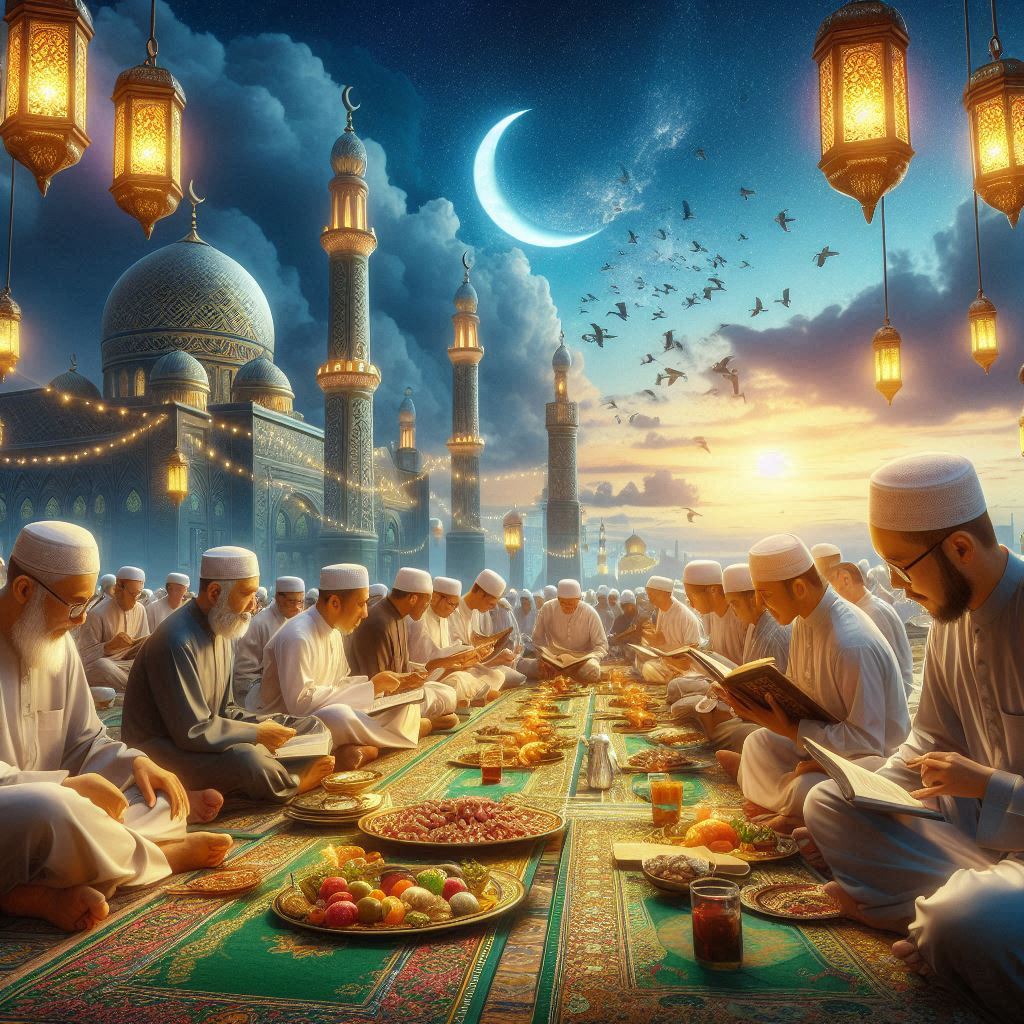
Ramadan traditions in America encompass a variety of cultural and religious practices that reflect the diversity of the Muslim community within the United States. Here is some key traditions observed during Ramadan in America:
Fasting and Suhoor/Iftar
The core of Ramadan revolves around fasting from dawn to sunset. Muslims in America wake up before dawn for a pre-fast meal known as Suhoor. Families and communities often come together for this early morning meal.
Iftar, the breaking of the fast at sunset, is a communal affair. Muslims gather for a shared meal, often starting with dates and water, followed by a larger dinner. Many mosques and community centers host iftar events to encourage social interaction.
Community Iftars
Muslims in America often participate in community iftar events organized by mosques, Islamic centers, and community organizations. These events foster a sense of unity and solidarity, bringing people from various backgrounds together to share the joy of breaking the fast.
Nightly Tarawih Prayers
Tarawih prayers are performed at night during Ramadan. Muslims in America attend nightly congregational prayers at mosques, engaging in extended worship sessions. The prayers involve the recitation of the Quran and contribute to the spiritual atmosphere of the month.
Charitable Activities
Ramadan emphasizes acts of charity and kindness. In the American context, Muslims participate in various charitable initiatives, including food drives, fundraisers, and volunteering at local community organizations. Giving back to the community is a significant aspect of Ramadan. Following are several fundraising and zakat associations in America:
Read more: Bali day of Silence
Cultural Exchange and Diversity
The multicultural fabric of the American Muslim community enriches Ramadan traditions. Different ethnicities and cultural backgrounds bring their unique flavors to the celebration. This diversity is often reflected in the variety of cuisines, traditions, and customs observed during the month.
Educational Programs
Mosques and Islamic centers organize educational programs during Ramadan, including lectures, Quranic recitations, and discussions on Islamic teachings. These programs provide an opportunity for spiritual growth and community learning.
Adapting to American Life
Muslims in America navigate the challenges of observing Ramadan while balancing work, school, and daily responsibilities. Some workplaces and schools accommodate religious practices, allowing flexibility for prayer and fasting.
Family Traditions
Families play a crucial role during Ramadan. Traditions may include joint cooking sessions, special family prayers, and creating a festive atmosphere at home. It is a time for strengthening family bonds and passing down cultural and religious values.
In essence, Ramadan in America is a dynamic and multifaceted experience that combines traditional Islamic practices with the cultural influences of the diverse American landscape. The month serves as a time for self-reflection, communal engagement, and the celebration of shared values.





2 comments